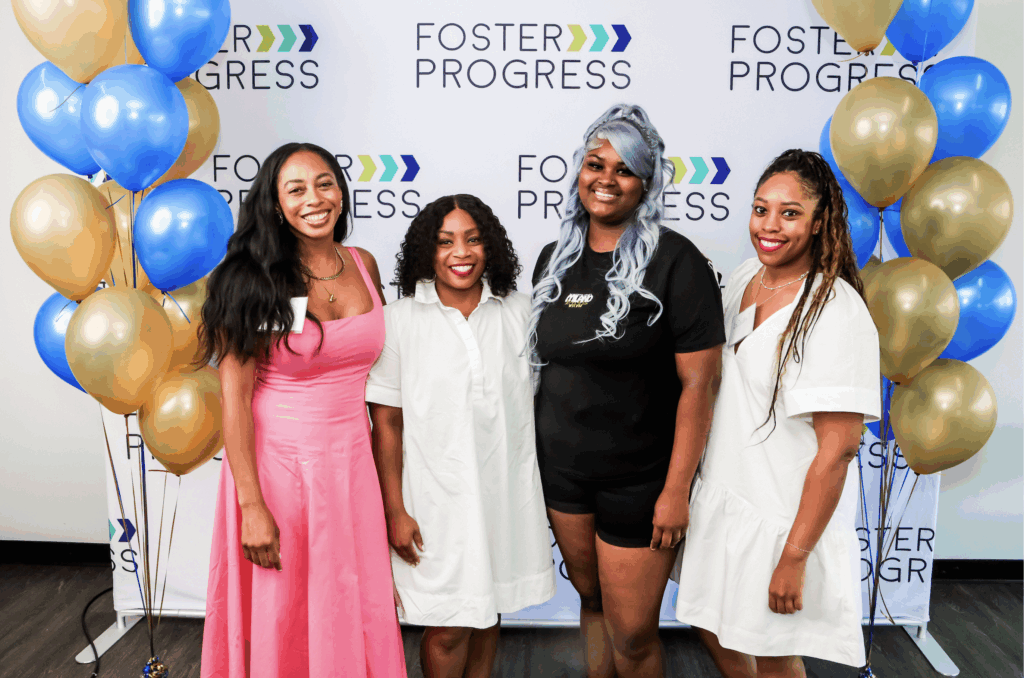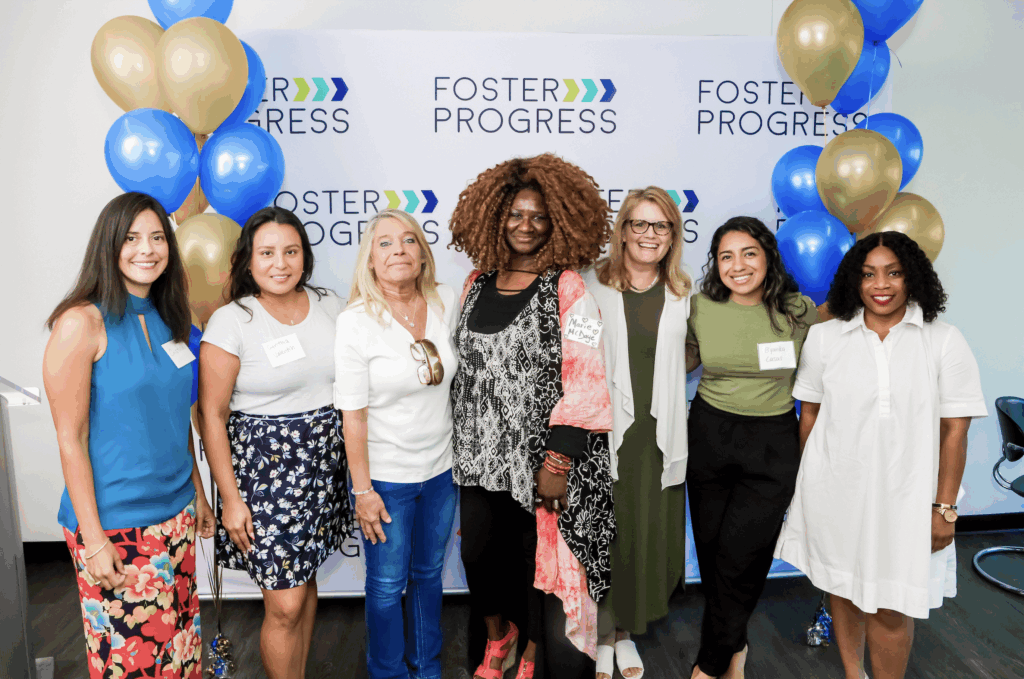Every young person deserves the chance to dream, plan, and have someone believe in them — yet those with foster care experience often enter adulthood without the safety nets many take for granted.
Nationwide, less than half of kids who experience foster care graduate high school, and less than 10 percent earn a degree from a 2-year college — statistics that reflect systemic shortcomings, not individual potential.
Improving Outcomes Through Mentorship
Young people who have been in foster care are too often treated as statistics rather than individuals with ambitions. Many age out into housing instability, student debt, and the weight of complex trauma — all while trying to build a future. Yet their dreams are no smaller than anyone else’s; they are simply less supported.
Foster Progress, an Illinois-based nonprofit, works to change those outcomes by pairing youth who have been in foster care with mentors, scholarships, and consistent guidance through the transition from high school to college and adulthood. Their work begins with a radical question: What changes when we consistently show up, invest in their futures, and expect more from the institutions around them?
Research shows that mentoring relationships improve educational outcomes and reduce feelings of isolation. Some studies have also linked mentorship to increased self-esteem and decreased involvement with the justice system.

The True Power of Mentorship
When Foster Progress launched its Scholarship & Mentoring Program, the goal wasn’t simply to match high school youth with adult mentors — it was to build a community that says, “You matter. You belong. And you have the support to get there.”

Consider Ali, who entered guardianship at the age of three and experienced several housing changes, including periods of near homelessness. Determined to attend college but without a clear roadmap, she connected with her mentor Julie Ann through Foster Progress. With one-on-one coaching, guidance navigating financial aid, and even help moving into her dorm room, Ali enrolled at Illinois State University, where she is earning her degree in psychology.
Education support is at the center of Foster Progress’s work because of its transformative impact. College completion increases long-term employment opportunities and income, yet only 8 to 12 percent of foster youth graduate from college.
Foster Progress scholars defy those odds: 88 percent persist through their first year, compared to the national foster youth average of about 50 percent. This success comes not from fewer challenges, but from more consistent support.

Programs like these do not replace families or erase trauma, but they can counteract a system that too often anticipates failure. Alumni have gone on to graduate, become social workers, and mentor the next generation — building a cycle of support that extends well beyond a single program.
How to Help
One of the most impactful ways to support youth with foster care experience is through mentorship. Mentors are steady, caring adults who walk alongside young people as they navigate the path to college and adulthood.
Learn more about mentoring opportunities and training, or donate to help empower youth who have experienced foster care to achieve their dreams.

This post was submitted as part of our “You Said It” program.” Your voice, ideas, and engagement are important to help us accomplish our mission. We encourage you to share your ideas and efforts to make the world a better place by submitting a “You Said It.”

